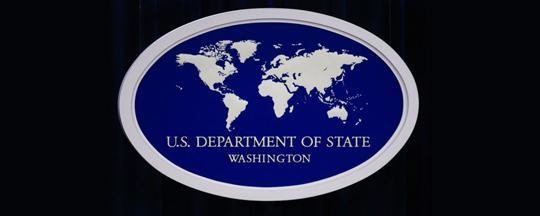The following exchange took place between US State Department Deputy Spokesman Mark C. Toner and a journalist at the State Department on Monday. They were discussing a reported request by President Omar al Bashir to visit the United Nations headquarters in New York City.
As host country of the United Nations, the USA has responsibilities to issue visas to people invited by the UN to its events.
A treaty between the USA and the UN says, “The federal, state or local authorities of the United States shall not impose any impediments to transit to or from the headquarters district of (1) representatives of Members or officials of the United Nations.”
However, the United States has hinted at arrested Bashir and handing him over to the International Criminal Court should he seek to enter the United States. Previously, the USA handed over a commander of the Lord’s Resistance Army to the ICC even though the US is not a member of the international court.
QUESTION: President Bashir, of course, has applied for a U.S. visa to attend the UN General Assembly. Where is State on his visa request? Are you considering it? Is it something that has a possibility of being granted, first of all?
TONER: Well, this is something we – this is kind of an annual rite of passage where he puts out this announcement that he’s going to apply or is about to apply for a visa to attend the UN General Assembly in September. The United Nations, as we all know, does extend an invitation to heads of state and government annually. I’d refer you to them for more details about who they send to.
Obviously, there’s a number of considerations at play when we look at these kinds of requests, and we’re going to act consistently with our relevant legal obligations. We can’t talk about the details of any individual visa cases, as you know. But we strongly support – even though we’re not members of – party to the Rome Statute of the ICC, we do strongly support its efforts to hold those accountable – excuse me, hold accountable those responsible for war crimes, especially crimes against humanity in – and genocide in Darfur.
So we’ve seen this happen before, this threat or this gesture, that he’s going to apply for a visa. We’ll look at it, obviously, and address it within our legal obligations.
QUESTION: Is there – you can’t talk about individual requests, but is there any reason to believe that the outcome will be any different this time around?
TONER: Well, again, we’ve never – he’s never actually attempted to arrive in – as far as I know, in New York. I think we’re just going to – we’re going to take it one step at a time. We do believe he should be held accountable for his crimes, though.



